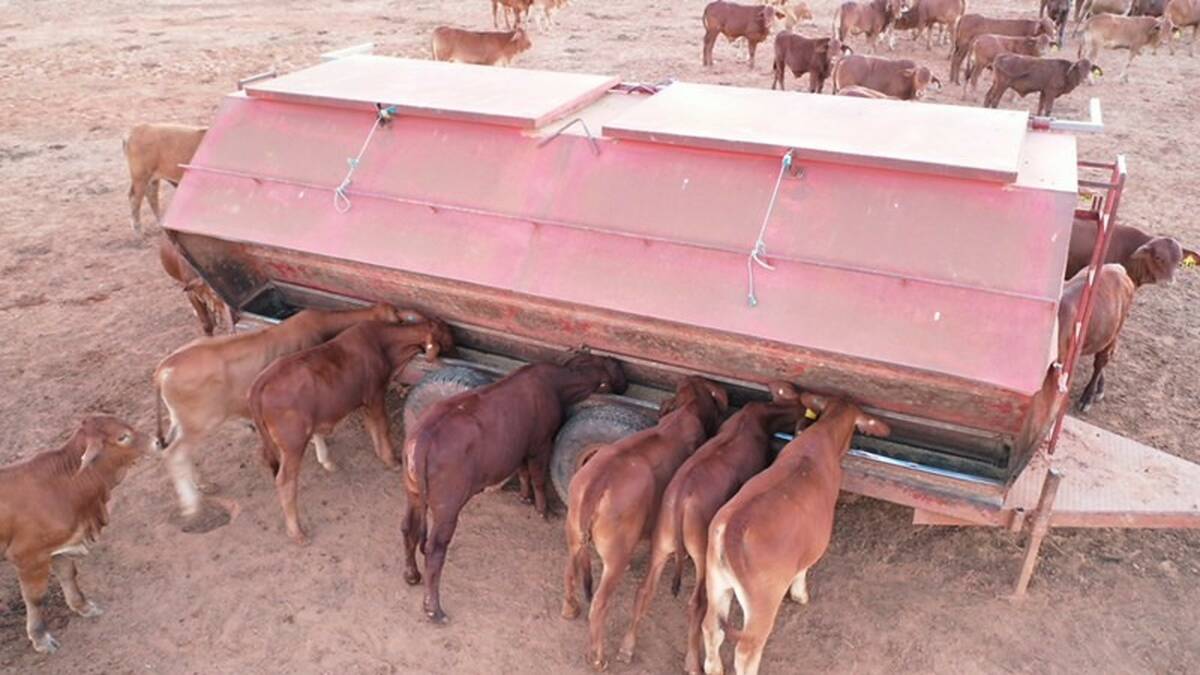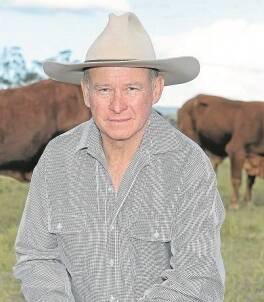
A beef producer who successfully early-weaned 1500 calves down to just four weeks of age says the 'radical' move helped him save his cow herd.
Subscribe now for unlimited access to all our agricultural news
across the nation
or signup to continue reading
Michael Flynn is a qualified veterinarian who runs the Valera Vale Droughtmaster Stud with his wife Tracey on properties in the Augathella and Scenic Rim districts of Queensland.
The Flynns run about 1000 stud cows run at Valera Vale, 30km south of Augathella, where all the weaners are trucked each year to be grown out. More breeders are also run on the Scenic Rim properties in south east Queensland.
Mr Flynn said their lowest point in terms of the drought came in January this year when they made the drastic decision to wean all their calves, some as young as four weeks, and feed them in small holding paddocks on Valera Vale.
"We weaned down to about a month old - it was a desperate, radical weaning," Mr Flynn said.
"We were in a position where we had no other options which is a terrible thing.
"Our cows would have died if we didn't get the calves off them. They were condition score one and two.
"Getting the calves off is equivalent to feeding them (the cows) 3.5 kilograms of grain a day so it saved them."
RELATED READING: Early weaning proving effective in managing drought
The Flynns used bulk quantities of Roasted Calf Muesli - a product made by the south-east Queensland boutique stock feed mill, MI-Feeds at Yandina.
The product is used more extensively in the dairy industry and is designed for calves from just one week of age.
Mr Flynn said the calves were drafted into lots according to weight with about 200 calves in the 'baby' group.
The muesli was fed out in grain feeders and the calves also had access to hay.
"We purchased the muesli from Elders in Charleville in B Double loads of bulk bags. We stored it in the shed and just emptied the bags into the grain bins," Mr Flynn said.
"I haven't seen a better product for early weaning. We didn't lose any to nutritional issues.
"It has good energy and protein, it's quite well balanced and it has Rumensin in it which controlled the coccidiosis.
"It might be a bit expensive for the older calves, not needed so much, but it was terrific for those very young calves."

Mr Flynn said the 1500 weaners were fed until rain arrived in March and they've been doing well in the paddock since then.
"They look good now - not mud fat but they are in good condition," he said.
The Flynns normally aim to wean in late April or early May.
Fortunately, it doesn't look likely they'll need to take such drastic action for this year's crop of calves thanks well-timed rain events at their Augathella property.
"We have had very little rain but it has fallen perfectly to keep the cattle going," he said.
"We've had under 8 inches for the year in a 21 inch rainfall area. If we do wean early it will be the Scenic Rim cattle that we will do."
Skinny cows? Consider early weaning
Future Beef extension officer and nutrition specialist Roger Sneath said early weaning was an excellent management tool to consider during severe droughts.
He noted a 450-kilogram lactating cow required 80 megajoules (MJ) of energy daily while a 450kg dry cow required just 50MJ.
Mr Sneath said it was unusual but not unheard of for beef producers to wean calves down to four weeks of age but more common at around two to three months.
"When things are tough and for the sake of the cow, early weaning is a good option," he said.
"The pressure gets taken off the cow by removing the lactation stress. You can feed a lactating cow but all that extra feed will just go through the milk to the calf and she'll get limited benefit."

Mr Sneath said early weaning was not necessarily a cheaper option once the cost of feeding the calves was factored in but it was best practice in terms of improving the body condition of the cow.
He said minimising stress was also important and producers should be well prepared with quality feed on hand, good hygiene in feeders and troughs and appropriately sized feed equipment.
Mr Sneath said it was also helpful to separate smaller calves from larger ones to reduce bullying.
When it comes to feed, Mr Sneath said there were many good products on the market and producers should look for good quality meals or pellets that include Rumensin.
The calf muesli ingredients include micronised grains (sorghum, barley or maize) soybeans, vegetable protein meal, vegetable oil, molasses and other additives.
The micronisation process, which essentially replaces a flaking or steaming procedure, includes putting the grains through an infra-red microwave plant.
The product is promoted as having a minimum of 18pc protein, 12MG/kg of energy, 8pc fibre and 1pc calcium.
Start the day with all the big news in agriculture! Click here to sign up to receive our daily Farmonline.

